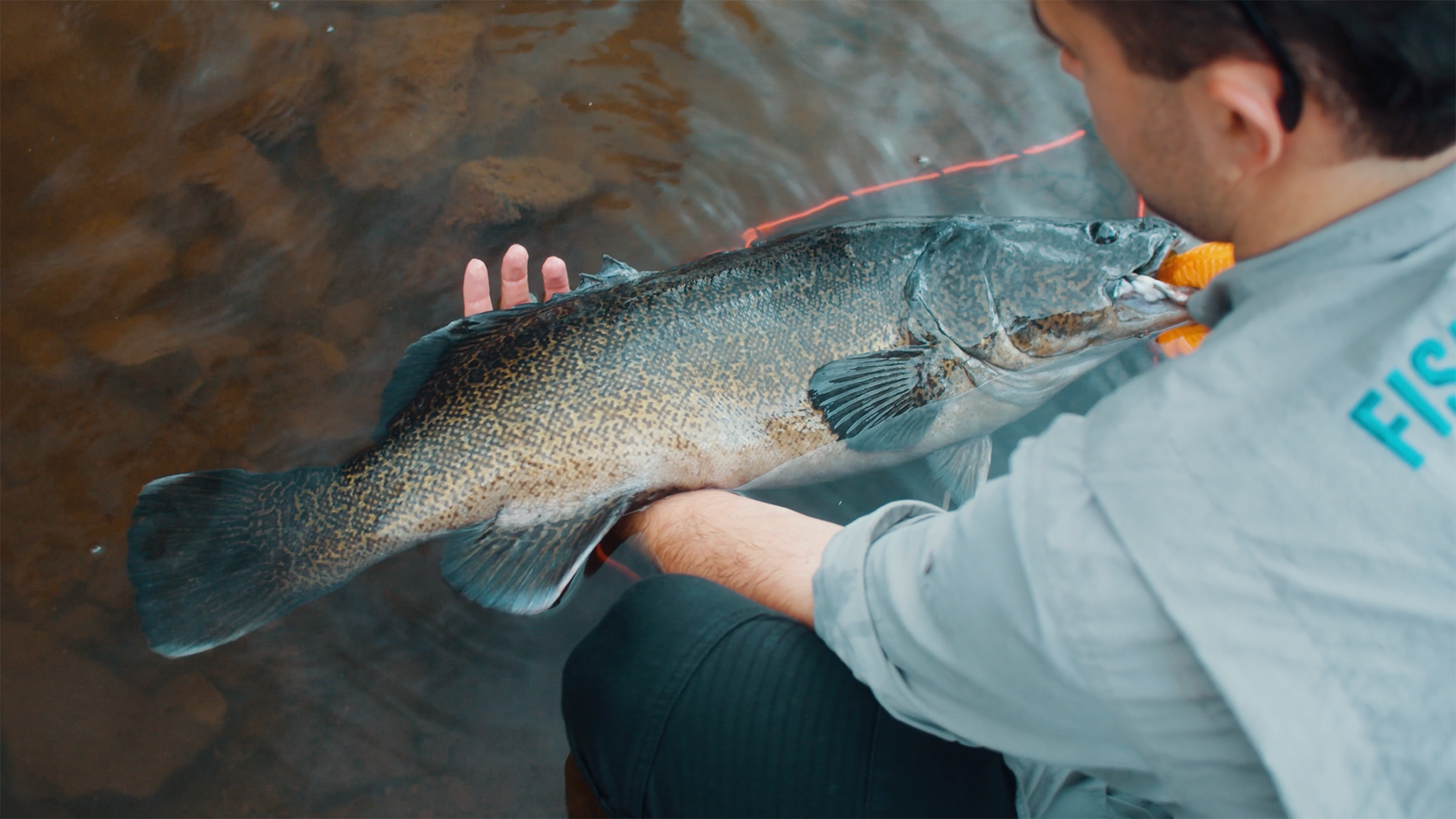Nymboida Bushfire Recovery gets helping hand as Eastern Freshwater Cod continues to fight back from brink of extinction

Three years after bushfires, then floods, devastated the Nymboida River, its revival is continuing to gather pace both in and out of the water.
And the rejuvenation of the area is not just on land with the endangered eastern freshwater cod also benefiting from the countless hours of hard work that has been put in to help regenerate the region.
The latest boost to habitat on the Nymboida comes from a combination of community grants awarded to the Clarence River Chapter of OzFish Unlimited, Australia’s fishing conservation charity.

Funds secured from the Foundation for Rural and Regional Renewal’s Yulgilbar Foundation will result in 5km of exotic weeds being removed from the riparian zone and 1000 local native plants established in their place.
A further three hectares of weed management and another 1000 trees are being funded by the Foundation for National Parks & Wildlife through its bushfire recovery restoration grants.
OzFish and Landcare NSW volunteer groups in the region have used a long-term agreement to restore fish habitat across New South Wales.
Trees will be planted on community education days and is backed by support from the NSW Recreational Fishing Trusts that will see local Landcare groups collaborate with recreational fishers to drive the restoration of fish habitat on the Nymboida River and secure the future of the endangered eastern freshwater cod and other inhabitants, including platypuses.

The utter destruction created by the 2019 fires and subsequent flooding wreaked havoc along riverbanks of the Nymboida River, resulting in a proliferation of wood weeds, erosion and a lack of native vegetation that is essential to the healthy functioning of the river and the eastern freshwater cod’s survival.
Restoration is vital as the river is one of the last remaining breeding grounds of a wild population of eastern freshwater cod.
As recently as the 1980s there were less than 1000 eastern freshwater cod left in the wild.

When the Liberation Trail Fire tore through Nymboida in November, 2019, it not only caused untold damage but it left behind ash and fire debris which was washed into the river just three months later when the area flooded.
With assistance from Landcare Bushfire Recovery Grants, OzFish volunteers began rehabilitation and revegetation work soon after, which included fencing stock away from the affected areas in 2020.
“The vegetation in the riparian zone, especially after the fires, it was pretty fragile,” said Alacia Cockbain, OzFish Project Officer – NSW Coast.
In that same year a breeding and restocking program for the freshwater cod was started with fingerlings being released.

As part of the efforts to help the Eastern Freshwater Cod, an artificial spawning habitat was trialled in the river last year and the early signs are that these structures have helped produce more fish to replenish stocks.
“They’re pretty much designed like a possum or a bird habitat box out of marine plywood into a triangle box with a hole for the cod to enter,” she explained.
“They are a water-engineered design. There’s concrete in the bottom of it so if the floods come through it’ll stay on the bottom of the riverbed and then it’s attached to wire cable which is attached to a tree so that they can be retrieved.
““The primary basis of the project is to see if the design of the artificial spawning habitat box can substitute lost breeding habitat and be an immediate boost to help fish spawn directly after catastrophically events such as the bushfires.

“The aim is to re-establish genetic diversity across their distribution and to increase population numbers through restoring the complex habitats they need. Populations have increased.”
One of the important elements to protecting the eastern freshwater cod is the ban on all fishing in the Nymboida River, Mann River and all its tributaries upstream of its junction with the Clarence River from the beginning of August until the end of October.
All fishing gear in or adjacent to these seasonally closed waters is prohibited with heavy fines in place for anyone who transgresses.
“They are totally protected. If people catch them by accident outside of the breeding season, they should keep them in the water and release them straight away,” Ryan Lungu, OzFish’s NSW Coast Program Manager, said.
“What we want to do is rebuild their habitat so we can one day catch them again and enjoy their fight on a line.

“It’s going to take us a long time to rebuild that system and that’s one of the last wild breeding populations of the eastern freshwater cod. That’s why this closure is so important.”
During the current three-month fishing closure for breeding season, the cod are quite aggressive as they are protecting their eggs from predators.
Even if you were to accidentally catch one to release straight away the eggs would most likely be gone within a few minutes.
These protections and closures ensure these beautiful native fish have a chance to recover.

When two passionate groups unite, like OzFish and Landcare, driven by robust volunteer support, their potential to effect change becomes endless.
“Our partnership with Landcare NSW is really gaining momentum,” said Ryan.
“By working together we are transforming local waterways and doing incredible things for native fish and other wildlife.”
This project was made possible by the OzFish-Landcare NSW partnership, and funded by the Foundation for Rural and Regional Renewal’s Yulgilbar Foundation, the Foundation for National Parks & Wildlife, the NSW Recreational Fishing Trusts and BCF – Boating, Camping, Fishing.

